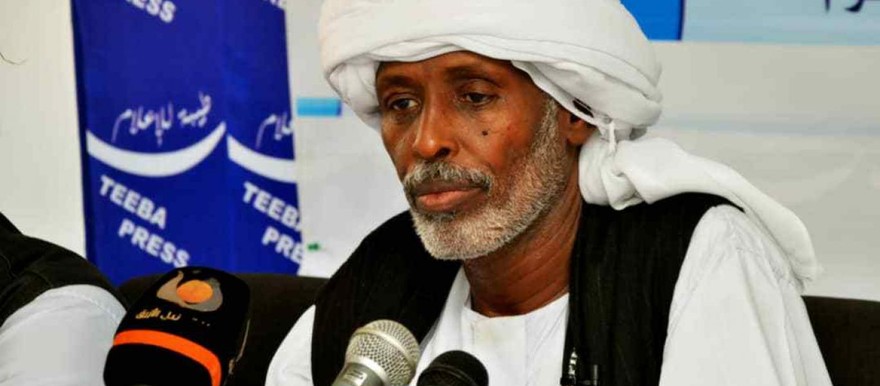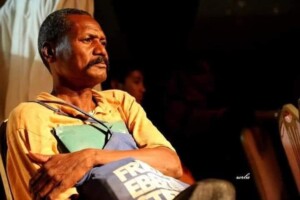Eastern Sudanese sign new JPA Implementation Matrix, Beja Nazirs Council rejects it

Sayed Tirik, head of the mainstream High Council of Beja Nazirs and Independent Chieftains (social media)
JUBA / PORT SUDAN – February 21, 2023
The eastern Sudanese parties to the Eastern Sudan Track protocol of the JPA, the Beja Congress in Opposition and the United Popular Front for Liberation and Justice, also signed the updated Juba Peace Agreement (JPA) Implementation Matrix in Juba on Sunday. The mainstream High Council of Beja Nazirs and Independent Chieftains headed by Hadendowa Nazir Sayed Tirik rejects the matrix.
Hamrour Hussein, leading member of the United Popular Front, told Radio Dabanga that the suspension of the protocol by Lt Gen Mohamed ‘Hemeti’ Dagalo, at the request of opponents in late 2021, is “a political decision that has nothing to do with the implementation of the agreement”.
He stressed the need to implement the JPA provisions related to the region’s right to have its share of the gold revenues and other resources, for which a percentage was agreed on.
More than $300 million is to be allocated for the development of eastern Sudan, which consists of Red Sea state, Kassala, and El Gedaref.
At least 14 per cent of civil servants in the region are to be eastern Sudanese as well, and eastern Sudanese students should be exempted from paying university fees, the JPA stipulates.
Beja Nazir Council rejection
The mainstream High Council of Beja Nazirs and Independent Chieftains headed by Hadendowa Nazir Sayed Tirik renewed its categorical rejection of the protocol, including the updated implementation matrix.
The Beja Nazirs Council was not involved in the Juba peace negotiations in 2019 and 2020. The Council has opposed the Eastern Sudan Track protocol since it was first agreed upon during the peace negotiations between the Sudanese government and the Sudan Revolutionary Front rebel alliance in Juba in February 2020.
Karrar Askar, Secretary of the Youth Forum of the Beja Nazirs Council, told Radio Dabanga that the Eastern Sudan Track protocol is “an entry point for the return of affiliates of the former regime” of ousted dictator Omar Al Bashir.
The council demands the cancellation of the protocol and a discussion on governance, power, and wealth sharing in eastern Sudan in a separate negotiating platform. “Saying that eastern Sudan will gain much through the protocol can only be called political arrogance,” Askar said.











 and then
and then